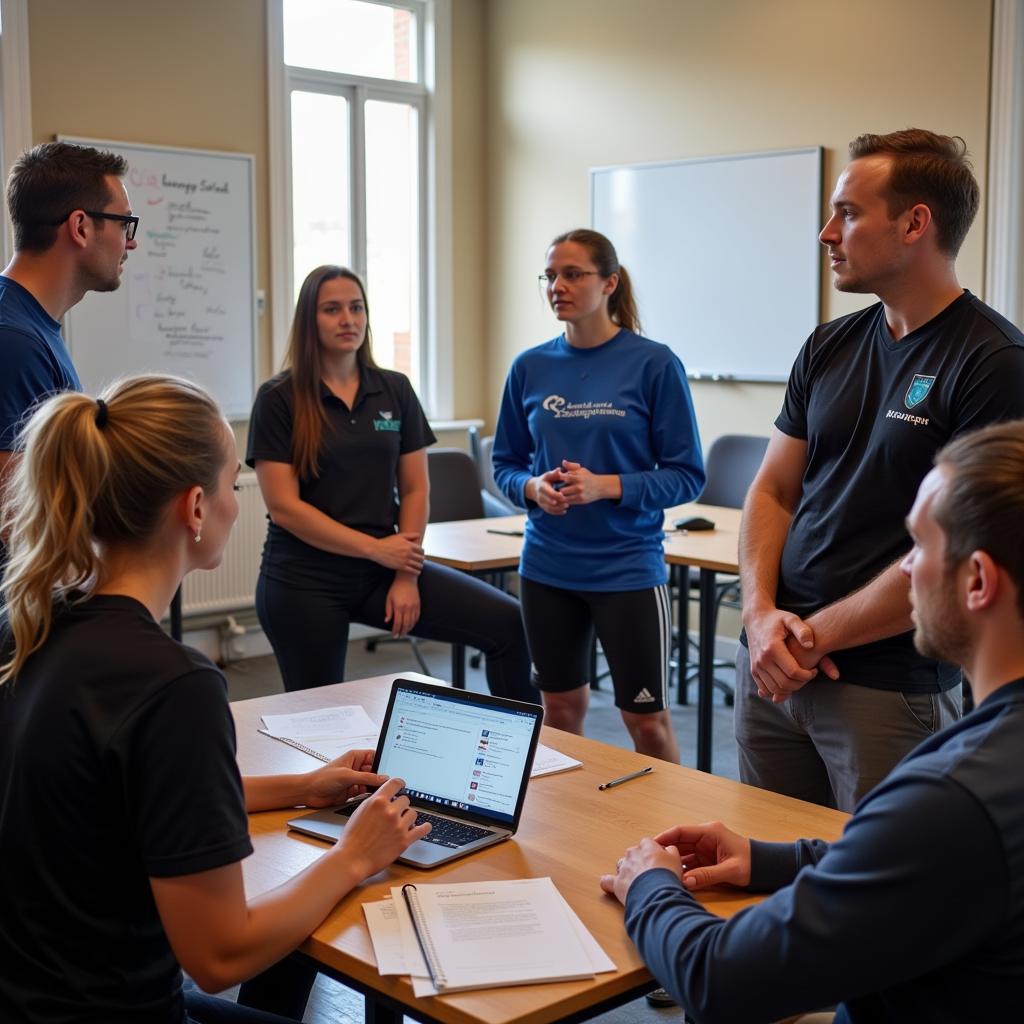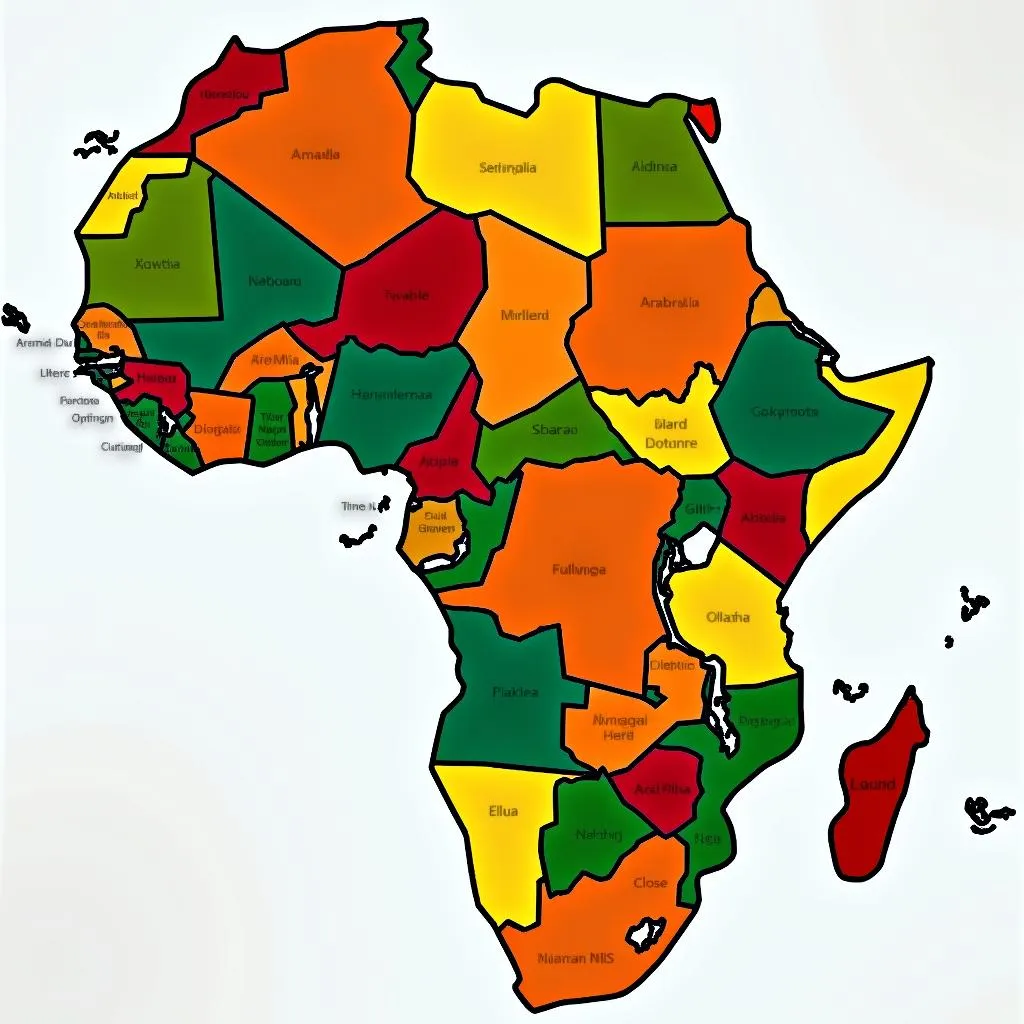A Survey of Mental Skills Training Among South African Athletes
A Survey Of Mental Skills Training Among South African athletes reveals a growing awareness of its importance in enhancing performance. This article delves into the current landscape of mental skills training in South Africa, exploring its prevalence, benefits, and challenges. We’ll examine the various techniques employed, the athletes’ perspectives, and the potential for future development in this crucial area.
The Importance of Mental Skills Training in South Africa
Mental skills training (MST) plays a vital role in athletic performance, equipping athletes with the psychological tools to manage pressure, maintain focus, and maximize their potential. In the competitive sporting landscape of South Africa, where athletes face immense pressure to succeed, MST is becoming increasingly recognized as a critical component of overall training. It empowers athletes to develop resilience, cope with setbacks, and cultivate a winning mindset. Beyond performance enhancement, MST also contributes to athletes’ overall well-being, helping them navigate the challenges of their sporting careers and personal lives.
Many athletes in South Africa face unique challenges, including socioeconomic disparities and limited access to resources. MST can provide valuable support in overcoming these obstacles, fostering self-belief and empowering athletes to achieve their goals. By developing mental fortitude, athletes can better navigate the pressures of competition and maintain a positive outlook.
Current Practices in Mental Skills Training: A South African Perspective
Current practices in MST among South African athletes vary depending on the sport, level of competition, and available resources. While some athletes benefit from structured programs implemented by sports psychologists, others rely on self-help techniques or informal guidance from coaches. Commonly used techniques include goal setting, imagery, self-talk, and relaxation methods. However, access to qualified sports psychologists remains a challenge, particularly for athletes in less-resourced communities. This disparity highlights the need for increased investment in MST resources and greater awareness of its benefits.
A recent study conducted by the University of Pretoria explored the use of MST among South African track and field athletes. The findings indicated a strong correlation between regular MST practice and improved performance, particularly in managing competition anxiety and maintaining focus during high-pressure situations.
“Mental toughness is just as important as physical strength,” says Dr. Nomusa Khumalo, a renowned sports psychologist based in Johannesburg. “Investing in mental skills training is an investment in the athlete’s overall success and well-being.”
 South African Athletes Developing Mental Strength
South African Athletes Developing Mental Strength
Future Directions for Mental Skills Training in South Africa
The future of MST in South Africa hinges on several key factors, including increased funding, improved access to qualified professionals, and ongoing research. Integrating MST into athlete development programs from a young age can foster a positive sporting culture and equip athletes with essential life skills. Furthermore, collaborative efforts between sports organizations, educational institutions, and government bodies are crucial to creating a sustainable and impactful MST framework.
Expanding access to MST through online platforms and mobile applications can also bridge the gap for athletes in remote areas or those with limited resources. By leveraging technology, MST can reach a wider audience and contribute to a more inclusive sporting environment.
“We need to move beyond the perception that mental skills training is only for elite athletes,” adds Dr. Khumalo. “It’s a valuable tool for anyone seeking to enhance their performance and well-being, regardless of their level of competition.”
 Future of Mental Skills Training in South Africa
Future of Mental Skills Training in South Africa
Conclusion: Empowering South African Athletes Through Mental Skills Training
A survey of mental skills training among South African athletes underscores its growing importance in maximizing athletic potential and promoting holistic well-being. By addressing the current challenges and investing in future development, South Africa can cultivate a sporting landscape where athletes are equipped with the mental fortitude to thrive both on and off the field.
FAQ
-
What is mental skills training (MST)?
MST encompasses a range of techniques designed to enhance psychological skills and improve performance. -
How can MST benefit South African athletes?
MST helps athletes manage pressure, improve focus, build resilience, and enhance overall well-being. -
What are some common MST techniques?
Common techniques include goal setting, imagery, self-talk, and relaxation methods. -
What are the challenges facing MST in South Africa?
Challenges include limited access to qualified professionals and resources, particularly in less-resourced communities. -
How can MST be made more accessible?
Expanding online platforms and mobile applications can make MST more accessible to athletes in remote areas. -
What is the future of MST in South Africa?
The future involves increased funding, improved access to professionals, and integrating MST into youth development programs. -
Why is MST important for all athletes, not just elite ones?
MST is a valuable tool for anyone seeking to enhance performance and well-being, regardless of their competitive level.
Further Exploration
- Mental Skills for Sports Success
- The Impact of Mental Toughness on Athletic Performance
- Resources for Mental Skills Training in South Africa
Need support? Contact us 24/7: Phone: +255768904061, Email: [email protected], or visit us at Mbarali DC Mawindi, Kangaga, Tanzania.

